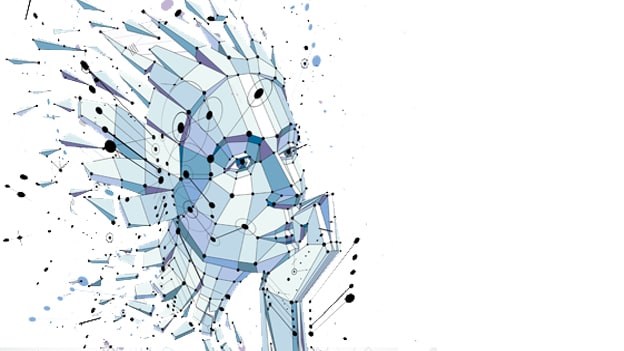The Rise of AI and the Revamp of HR

Artificial Intelligence (AI) is fast becoming a mainstream element of business, a trend that is clearly visible in the APAC markets. While the larger Asian economies like India and China have the privilege of humungous data, Singapore and Australia have a clear roadmap for leveraging their strong R&D capabilities for AI advancement. The applications of AI differ by demographics, ranging from financial services to logistics to healthcare and more recently, talent management. Singapore is turning to AI to future-proof its economy against its core challenges- an ageing population and human-resource constrained economy. The wide presence of knowledge-intensive industries is compelling the government to explore automation and AI-led avenues to manage talent better. As a result, AI will have a profuse impact on human capital management, from an organizational perspective.
There is already much strife about how automation will result in job losses, creating a socio-economic upheaval. 70% of the HR executives who were surveyed for “Asia’s AI Agenda” quoted that they expected job losses over the next five years. This means that human resources would need to step up the talent management game to create new employment opportunities and foster an environment of “man-with-machine”.
The changing employer role
The result is clear- HR’s job itself is going to change drastically with the advent of AI. A significant 87.5% of the ADP-MIT survey’s respondents stated that AI will have a significant impact on the HR function and HR role. AI will demand process enhancements, while the dynamic business will demand human skills like collaboration, problem-solving, leadership etc. Despite this tug-of-war, the driving force of any industry will continue to be about people and their fit, according to James Hewitt, the Singapore-based strategy leader at IBM Watson Talent Asia*. 66.7% of the respondents in the ADP-MIT survey said that HR will transition to “chief productivity officers”, managing both digital and human talent to create the best mix. A mere 33.3% felt that HR will focus only on managing people.
This is evident in Singapore, where the fundamental challenge for HR will be “finding fungible workforce”. Finding the employee culture-fit will be a critical success factor, and the HR organization would need to realign based on “projects” and “tasks” than mere jobs.
HR will need to rethink and rejig the organizational construct, creating flatter, cross-functional team structures. They will need to build the right capabilities to create value at the cusp of machine and human intelligence. Reskilling, upskilling, organization restructuring, continuous learning, systems automation etc. will be the go-to HR interventions to make this happen.
The positive aspect is that efforts to imbibe the AI way of life are extending beyond the corporate level. The Singapore government is determined to see that the adoption of AI in the Singaporean economy will produce a net increase of jobs, especially in areas like data analytics, cybersecurity, robotics engineering, and revenue management. This poses the question- while jobs would be available, how will employees and job seekers adapt to this new normal?
Employee side
While HR may do its bit in incorporating AI, AI transformation is a big cultural change and a tough one for employees to adapt to. As organizations re-examine the tasks and capabilities that have traditionally composed an employee’s responsibilities, new employer-employee constructs are expected to emerge. Employees will need added flexibility, freedom and skill upgradation opportunities to deliver in line with the new organizational direction. Job seekers will need to build the future competencies that organizations require to fulfill the new roles. Existing employees will need to embrace continuous learning, through social learning, micro-learning, mobile learning and other new learning mechanisms.
In short, employees will need to respond to market trends. They will need to don the productivity-hat while solving business challenges, from learning and using new systems to making sense of data and analytics. Employees will thus be required to undergo a fundamental shift in attitude towards work, as the nature of work itself changes.
It is clear that AI demands a phenomenal shift at both the employer and employee-end. The key to unlocking the potential of AI lies in balancing technology and the human touch. This is possible only with a consolidated approach, where technologists, business leaders, and HR come together to win the AI game. A siloed approach will not work. While IT may design and implement the required systems, the real challenge is to integrate machines into our work life, like we do our human colleagues. And this must be done in a productivity-centric manner.
Here is where the role of leadership is crucial to AI success. Leadership needs to buck up and ask the tough questions- “where is the return on investment in the AI endeavor?” They must devise the right metrics to measure the real value-add, whether it is “revenue per employee” or “transaction per employee.” Parallel, they must balance this drive-for-results with patience and an “ear for the employee”, assuring their people that the organization plans to augment human intelligence and not replace it. This will go a long way in quelling fears equipping employees to take on the AI wave. Leaders must extend an ongoing commitment to the AI shift by actively participating in AI projects and sharing best practices and insights. They must take everyone along in this quest. Only then can they be the best at winning this highly disruptive game, and leverage the opportunities that AI presents.
Reference:
https://www.adp.sg/resources/whitepapers/artificial-intelligence-report
(This article is curated from the Singapore Human Capital Summit 2017 session)


















